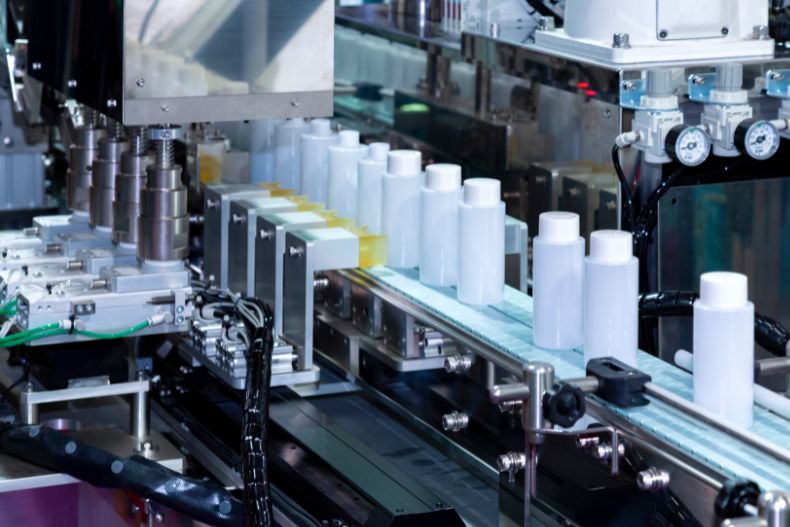Taking care of one’s health and well-being is one of the key priorities in the lives of millions of people worldwide. Nowadays, many consumers are doing everything they can to stay active and healthy for as long as possible: adopting a balanced diet, engaging in various sports, and showing interest in the composition and benefits of the products they consume.
However, the human body requires a significant amount of nutrients to maintain the health and smooth functioning of all organs and systems. Unfortunately, sometimes even the most nutritious diet cannot provide the necessary amount of certain micro- and macronutrients. Firstly, different products contain varying amounts of beneficial nutrients. Secondly, many properties of these substances are lost during the thermal processing of products.
As a result, consumers often seek ways to replenish the deficiency of important substances in the body through dietary supplements containing proteins, fats, carbohydrates, amino acids, vitamins, and minerals. Currently, supplements containing omega-3 polyunsaturated fatty acids are particularly popular, as without them, the healthy functioning of the body is practically impossible.
Therefore, entrepreneurs are doing everything possible to meet consumer demand: expanding the range of products, combining different ingredients, and improving manufacturing methods. Currently, technologies related to omega-3 manufacturing are rapidly developing: molecular distillation, ultrafiltration, chromatography, microencapsulation, fermentation, as well as the production of supplements using microalgae and supercritical carbon dioxide.
If you have also considered creating your own brand of dietary supplements, you do not necessarily need to build a factory, hire a large staff, purchase equipment, and establish all technological processes from scratch. This can be done much more easily and quickly with the help of private label omega-3 manufacturing.

Omega-3 Overview: Benefits, Sources, and Types
Omega-3 fatty acids are a whole group of polyunsaturated fats that perform numerous vital functions within the human body. Unlike cholesterol, omega-3s are considered beneficial fats as they are essential components of membranes that surround each cell in our body. More than ten types of omega-3 fatty acids are known to science, but the following are the most important:
- Alpha-linolenic acid (ALA)
- Eicosapentaenoic acid (EPA)
- Docosahexaenoic acid (DHA)
ALA is typically sourced from vegetable oils, whereas DHA and EPA are found in many other foods, including fish and algae. ALA is an essential fatty acid, meaning it cannot be synthesised independently by the human body.
Another important aspect is that the body can convert alpha-linolenic acid into eicosapentaenoic and docosahexaenoic acids, but this process occurs at a relatively slow rate. Therefore, to ensure the smooth functioning of the entire body, individuals need to consume an adequate amount of ALA, EPA, and DHA through their diet.
Excellent sources of omega-3s include various types of fish and seafood, such as salmon, mackerel, tuna, herring, sardines, seabass, shrimp, and oysters. omega-3s can also be obtained by consuming seaweed, spirulina, chlorella, and other types of algae. Among seeds and nuts, chia seeds, hemp seeds, flax seeds, walnuts, and edamame are particularly rich in fatty acids. To prevent omega-3 deficiency, individuals can add soybean oil, beans, eggs, natural fruit juices, dairy products, and bread to their diet.
Omega-3 fatty acids are essential for the proper functioning of many body systems:
- Cardiovascular system: omega-3s help lower blood pressure and triglyceride levels, contribute to the prevention of various cardiovascular diseases, including stroke and heart attack.
- Immune system: They possess anti-inflammatory properties, strengthen the immune system, which is crucial for protecting the body against viruses and infections, and prevent the development of chronic diseases.
- Respiratory system: omega-3s are beneficial for maintaining lung function. Some studies have shown that omega-3 fatty acids can reduce the risk of asthma in children.
- Nervous system: They have a positive impact on cognitive functions, improve memory and concentration. omega-3s can also be used to prevent various brain-related disorders.
- Endocrine system: Research indicates that omega-3s contribute to normalising blood glucose levels, combat manifestations of metabolic syndrome and diabetes.
- Vision: omega-3s play a crucial role in maintaining the proper functioning of the eye’s retina and preventing certain vision-deteriorating conditions.
- Musculoskeletal system: They support joint health, enhance mobility, help reduce inflammation, and address symptoms of arthritic conditions.
- Skin: omega-3s improve skin condition, nourish body cells, alleviate dryness and irritation. They also have a positive effect on hair and nail health.
- Mental health: These fatty acids aid in managing stress, anxiety, and depression, improve mood, and help normalise sleep patterns. omega-3s can also enhance the condition of individuals with schizophrenia, bipolar disorder, and ADHD.
Omega-3 fatty acids are beneficial for preventing autoimmune diseases, certain types of cancer, Crohn’s disease, psoriasis, and ulcerative colitis. Additionally, these acids can increase physical endurance, slow down ageing processes, and normalise metabolism.
Private Label Manufacturing: Business Benefits
Thanks to the many beneficial properties of fatty acids, private label omega-3 manufacturing can become a highly profitable and promising business. Contract manufacturing allows delegating the production of a dietary supplement to a reliable partner and obtaining a finished private label product.
This form of collaboration has significant advantages:
- Budget optimization. You do not need to spend huge amounts on purchasing or renting premises, equipment, employee salaries, or laboratory work. The entrepreneur pays only a commission to the manufacturer, allowing you to create your own product even with a limited budget.
- Time saving. Typically, omega-3 manufacturing at such facilities is well established. All processes, from formula development to distributing finished dietary supplements through sales channels, occur quite swiftly, enabling you to become the owner of a private label dietary supplement in just a few months.
- Increased recognition. Experienced marketers often operate within contract manufacturing setups, assisting in devising a marketing plan for the new product. This helps enhance its recognition, create a unique and appealing corporate style for the dietary supplement, including its name and packaging design, and select the most effective communication channels with the audience.
- Expansion of product range. If you already have various dietary supplements in your product portfolio, private label omega-3 manufacturing can be an excellent tool for expanding your range. You can introduce new product lines for different target audiences, thereby increasing sales and customer loyalty to the brand.
- Production control. As the entrepreneur acts as the client and the manufacturer as the contractor, the brand owner has the ability to oversee all stages of product creation, including raw material selection, production technologies, packaging forms, and other details related to both content and the appearance of the future omega-3 dietary supplement.
- Quality certificates. Any dietary supplement must possess certificates confirming the quality and safety of the product. Fortunately, manufacturers with a good reputation are well acquainted with the certification procedure and can assist you in obtaining all necessary documents in a relatively short time.
- Profitability. Finally, omega-3 manufacturing, with the aid of a reliable partner, can become a highly successful and profitable business, as your supplement can enjoy substantial demand among consumers. In such a case, you will have the opportunity to steadily grow your company, expand your product range, enter new markets, and scale your business.
The Importance of Selecting Quality Raw Materials for Omega-3 Manufacturing
The quality of a dietary supplement containing omega-3 fatty acids depends on many factors. However, arguably the most crucial factor is the quality of the chosen raw materials. Indeed, even with the utilisation of the most innovative technologies and state-of-the-art equipment, a product is unlikely to be successful if low-quality raw materials were used in its creation.
As a rule, omega-3 manufacturing employs products and substances rich in alpha-linolenic, eicosapentaenoic, and docosahexaenoic acids. The most popular source of omega-3 is fish oil, which is extracted from various types of fish, including sardines, mackerel, salmon, herring, and cod. omega-3 is also found in fish skin, cartilage, and internal organs, which is why fish production by-products are sometimes used as a source of omega-3.
If you position your dietary supplement as vegan or vegetarian, it is worth paying attention to sources of plant-based fatty acids. In this case, raw materials can include hemp or flaxseed oil, soybeans, walnuts, and chia seeds. Additionally, microalgae are now increasingly used as a raw material for dietary supplements; this ingredient is considered more environmentally friendly than most others.
To avoid making mistakes in choosing a supplier of raw materials, the following factors should be taken into account during the search:
- Supplier’s reputation;
- Availability of documents confirming the quality of the raw materials;
- Source of omega-3 used by the supplier;
- Pricing policy;
- Delivery terms and conditions;
- Production practices employed by the supplier;
- Prospects for long-term cooperation;
- Laboratory conclusion regarding the purity and safety of the raw materials.
Omega-3 Supplement Manufacturing Methods
If you wish to create a commercially advantageous product, it is necessary to also ensure that a good selection is provided to customers. For instance, in private label omega-3 manufacturing, you can produce a dietary supplement in various forms, such as:
- Soft tablets and capsules in blisters,
- Liquids in bottles and flasks,
- Powders for beverage preparation,
- Confectionery, chewing gum, and marmalade with omega-3,
- Sprays for children,
- Nutrient bars,
- Gels in tubes,
- Cooking oil and others.
Equally significant is how precisely you manufacture the dietary supplement. If you utilise state-of-the-art technologies, this will enhance the product’s image in the eyes of customers. Learn more about the methods employed in omega-3 manufacturing. Currently, crafting a supplement with omega-3 often involves processes like extraction, encapsulation, distillation, pasteurisation, fractionation, sterilisation, and filtration.
Moreover, it is necessary to ascertain in advance whether your partner possesses the requisite manufacturing capabilities for producing a high-quality dietary supplement containing omega-3 fatty acids. Typically, equipment such as the following is frequently used in the production of such products:
- Extractors,
- Distillers,
- Spray dryers,
- Vacuum apparatus,
- Filtration systems,
- Mixers,
- Turbo mixers,
- Pasteurisers,
- Sterilisers,
- Spectrophotometers,
- Chromatographs.
It is worth paying attention to these details even prior to launching full-scale production, as the quality of the final product and its commercial success depend on them.
Effective Marketing and Sales Strategies for Omega-3 Supplements
Without an effective marketing strategy, it is unlikely that you will manage to gain widespread popularity among consumers. Therefore, how you should promote the dietary supplement needs to be considered even at the stage of creating a business plan. First and foremost, you should conduct thorough research and market analysis, select a target audience that might be interested in your product.
Using the data obtained from the research, you can develop a compelling branding and differentiation concept. The name of your dietary supplement, its positioning, brand values, and key messages should align with the tastes, needs, and desires of your target audience.
Packaging requires special attention — apart from preserving the dietary supplement itself and its beneficial properties, it often acts as a magnet for buyers. Hence, it is essential for it to stand out favourably against competitors, being stylish, attractive, and informative.
Choose communication channels that can reach the maximum relevant audience. For example, you can use contextual advertising, launch campaigns on social media, place native content in authoritative publications, send out email newsletters, or even employ more traditional promotional methods like radio, television, billboards, or point-of-sale (POS) advertising.
More often than not, after omega-3 manufacturing is complete, entrepreneurs employ the following distribution channels for their products:
- Mass-market. Retail sales in supermarkets and stores that offer various categories of goods, including dietary supplements.
- Specialised stores. For instance, stores specialising in sports nutrition or health and beauty products, as well as pharmacy chains.
- Online sales. You can either establish your own online store or list your omega-3 dietary supplement on popular marketplaces or other online platforms.
- Direct sales. These sales are conducted through distributors who work on behalf of the private label owner and directly distribute the product.
When choosing effective sales channels for your omega-3 dietary supplement, consider the characteristics of your target audience and the product’s positioning.
Conclusion
To this day, the production of dietary supplements is a promising business direction, capable of bringing entrepreneurs a good income, popularity, and opportunities for further brand development. If you have long contemplated creating a dietary supplement with omega-3 fatty acids, consider utilising the services of private label omega-3 manufacturing.
During omega-3 manufacturing, pay attention to the quality of raw materials, production technologies, equipment used, and product packaging. Approach the development of a marketing strategy and the selection of dietary supplement sales channels responsibly. This way, you can create a high-quality, beneficial, and popular product among consumers in a relatively short period, even if your initial capital is limited.











